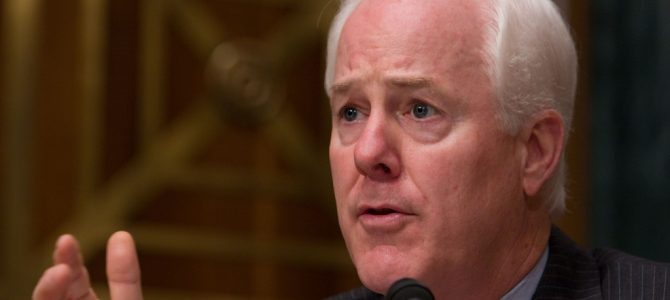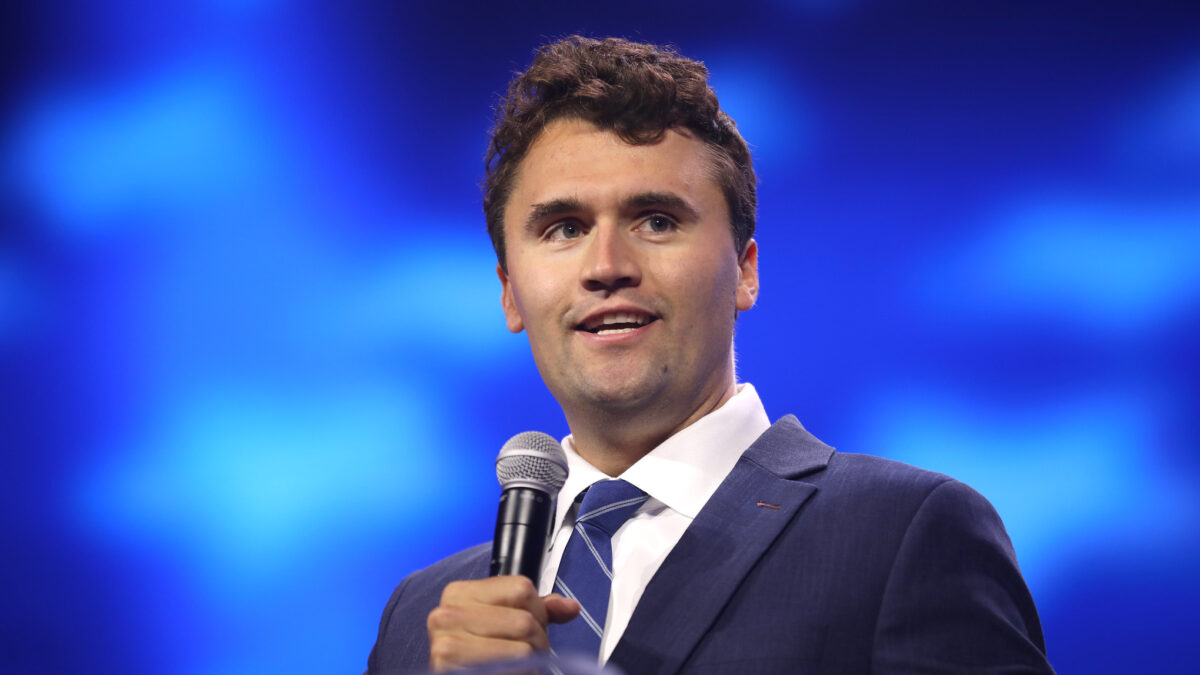
As the Senate’s second-ranking Republican, John Cornyn holds significant sway in policy-making circles. In his third term, and serving on both the judiciary and finance committees—the latter of which has jurisdiction over Medicare and Medicaid—Cornyn should have a good working knowledge of health policy.
All of that makes this tweet, sent Friday from his account, so surprising:
How can advocates tout Obamacare a success, when among many other flaws, it leaves 30 million people uninsured?
— Senator John Cornyn (@JohnCornyn) December 2, 2016
The tweet essentially complains that Obamacare wreaked massive havoc on the health care system, while leaving 30 million uninsured. It’s similar to the Catskills joke cited by Woody Allen in “Annie Hall”: “The food at this place is really terrible—and such small portions!”
Observers on Twitter noted the irony. Some asked Cornyn to support more government spending on subsidies; some asked him to have his home state of Texas expand Medicaid; some asked for a single-payer system that would “end” the problem of uninsurance entirely.
For that matter, increasing the mandate tax to thousands of dollars, or putting people in jail if they do not purchase coverage, would also reduce the number of uninsured. Does that mean Cornyn would support those efforts?
It’s the Costs, Stupid!
There are many reasons conservatives should not remain fixated on the number of people with health insurance when designing an Obamacare alternative.
Insurance Does Not Equal Access: The narrow networks and high deductibles plaguing Obamacare exchange plans—imposed because federally mandated benefits force insurers to find other ways to cut costs—impede access to care, making finding an in-network physician both more difficult and more costly.
Similarly for Medicaid—the prime source of Obamacare’s coverage expansions—beneficiaries themselves don’t even consider a Medicaid card “real insurance,” because they cannot find a physician who will treat them: “You feel so helpless thinking, something’s wrong with this child and I can’t even get her into a doctor….When we had real insurance, we would call and come in at the drop of a hat.”
Insurance Does Not Equal Better Health: The Oregon Health Insurance Experiment compared a group of individuals selected from a random lottery to enroll in Medicaid with similarly situated individuals who did not win the lottery and did not enroll in coverage. It found that Medicaid coverage brought no measureable improvement in physical health outcomes. Likewise, prior studies have suggested that, for health outcomes Medicaid coverage may be worse than having no health insurance at all.
Beneficiaries Do Not Value Health Insurance: Another study from the Oregon Health Insurance Experiment released last year found that most Medicaid beneficiaries valued their health insurance at between 20 and 40 cents on the dollar. In other words, if given a hypothetical choice between a Medicaid insurance policy valued at $3,000, and cash in the amount of $1,500, most beneficiaries would choose the cash.
Obama Promised to Lower Costs—And Failed to Deliver: During his 2008 campaign, Barack Obama didn’t promise to reduce the number of uninsured by a certain amount. He did, however, promise to cut the average family’s health insurance costs and premiums by an average of $2,500 per year. On that count, his health law failed miserably. Since the law passed, employer-sponsored coverage has risen by more than $4,300 per family. Exchange policies spiked dramatically in 2014, when the law’s mandated benefits took effect, and are set to rise again this coming year.
Voters Care Most About Costs: Prior polling data indicates that, by a more than two-to-one margin, voters prioritize the cost of health care (45 percent) over the lack of universal coverage (19 percent). Likewise, voters prefer a health plan that would lower costs without guaranteeing universal coverage to a plan that would create universal coverage while increasing costs by a 13-point margin.
Buying into a Liberal Shibboleth
The responses from liberals to Cornyn’s tweet indicate the extent to which health coverage has become a shibboleth on the Left. There are few things liberals will not do—from spending more money on subsidies, to creating a single-payer system, to expanding coverage to illegal immigrants—to ensure everyone has a health insurance card. (Some liberals might object to putting people in jail for not buying health coverage. Might.)
The liberal fixation—some would call it an obsession—over the number of people with health insurance comes despite evidence suggesting insurance coverage does not necessarily equate with access or improved health outcomes. Over the past 40 years, 90 percent of the growth in safety net spending has come in the form of higher spending on health programs. That spending could have been more effective in alleviating poverty by improving the education system, changing transportation patterns, or enhancing nutritional options in poor communities, all of which also could foster better health outcomes. But because liberals remain singularly focused on the number of Americans with insurance cards, that’s where they want to focus all the federal government’s time and energy.
So, apparently, does John Cornyn. Rather than pledging to lower health costs—Americans’ top health care goal—or questioning the effectiveness of Democrats’ focus on health insurance above all else, his tweet looks like pure kvetching about a problem he has no interest in solving. If one wants to understand Republicans’ problems on health care—both their poor messaging, and their single-minded policy focus on replicating liberal solutions in a slightly-less-costly manner—they need look no further than this one tweet.









